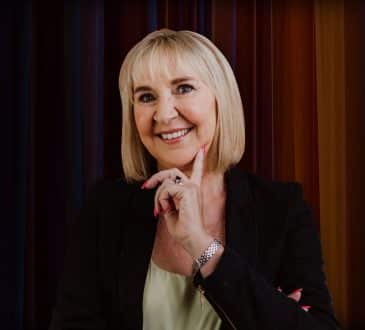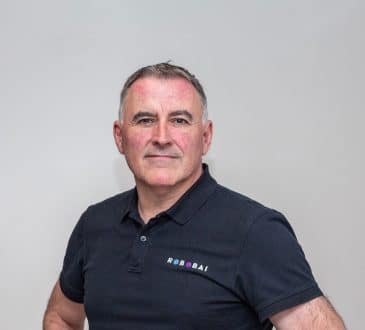How to ask the right questions about your money

While there are millions of articles, Tik-Tok’s, podcasts, and books about money that provide guidance for how we can (and should) take control of our financial future, there’s one habit that’s chronically missing:
Ask the right questions.
Being curious and asking the right questions is what will lead you to the right answers. If you ask the wrong questions, you’ll receive the wrong answers. For example, if you are seeking to understand why you have headaches, but you ask the doctor why your knee hurts – your doctor will provide solutions for your knee pain and not address the headache. Asking your doctor about your headache and the specific issues related to it, will get you the right answer.
All too often, the questions we ask are about products and how they work. But our goals are subjective. That’s a big disconnect. As a result, we get sidetracked by thinking about the product first, rather than thinking about whether it fits into our financial lives and will help us meet our goals.
A great example is bitcoin. When bitcoin was at the height of its popularity, people were deciding whether or not they should be buying bitcoin, and if so, how much bitcoin. The right questions are: What are my goals? Will bitcoin help me reach my goals? Is bitcoin the right tool for the job?
Think back to the last time you saw your doctor and you had something bothering you. Did the doctor just provide you a solution based on your immediate description or the first thing they saw? Or did the doctor ask you questions?
The reason why doctors ask you questions is because they are using a diagnostic process to determine the condition that may be causing your symptoms. Doctors know that there are underlying items that will impact their diagnosis and treatment. They are trained to ask the right questions so they can be successful. When a doctor doesn’t ask the right question, or get the right information, their treatment will usually fail.
When you are reviewing your money, you can use the same approach and diagnose your financial life. You’ll be able to look at the underlying issues that are having an impact. Oftentimes, financial success is held back by underlying issues. This can include feeling shame about your money, not knowing how a product works or not putting in time.
Here are the questions that you should really be asking:
Does this product/service fit my goals?
If a product/service doesn’t fit your goals, it’s not the right product/service. As discussed above, we oftentimes think of the product first and then evaluate the product in a vacuum without looking at the bigger picture. If we start with the bigger picture, we can often see that something is not the right fit. It would be like taking a piece from one puzzle and trying to fit it into a different puzzle.
For example, if you are creating a rainy day fund, so that you are ready for an unexpected expense, you’ll want to keep your funds liquid so that you can easily access them. However, we often start with a product first and decide whether or not to purchase that product instead of asking what products will help meet our goals. So, if we were evaluating buying gold, we would know right away that this was the wrong product since it is not a liquid asset.
Who’s giving the advice? What’s the source of the information? Is there a bias? Are they qualified?
This is really important when it comes to money
Think about it this way: If you had an issue with your vision, you would go to an eye doctor. You wouldn’t ask for advice from your dentist or from someone who writes a blog about how they deal with their vision issues. In this case, we look for someone who has experience in dealing with vision issues, has the right education and is fully qualified.
When it comes to your money, you should look for someone who has specific expertise and experience in a particular financial service or product. Just because someone is offering you a product or service doesn’t mean that they know anything about it. For example, if you are considering following someone’s advice regarding your investment strategy, you’ll want to work with someone who has experience and is qualified to talk about investment strategies. They will then be able to walk you through your options.
Do I understand the product or service?
If you don’t understand it, you should walk away as you won’t get what you expect.
When you understand a product or service, you are likely to keep it. You’ll have evaluated how the product works and whether it’s the right fit for you. A great way to test your understanding is to explain it someone else or write a quick summary. If you’re not able to do so, you don’t understand it.
What are the true costs/expenses?
The true cost for a major purchase such as a home or car extend well beyond the purchase price. The true cost for a home includes mortgage, insurance, property taxes, utilities, etc. This will have a substantial impact on what home you can afford. This principle applies to almost every purchase which can include the purchase price and possibly sales tax, convenience fees and shipping fees.
Reviewing expense charges can make a significant difference over the long term. For example, If you compare two mutual funds, one of which has a 2% expense charge and the other a 1% expense charge. If everything else is equal, going with the mutual fund with the lower expense charge will give us a 1% savings on expenses which means a 1% additional return.
Do I have a positive mindset? Are my emotions or past experiences impacting my judgment?
The most important factor to stay on track with your financial life is to have the proper mindset. We need to be judgement free and avoid money shaming.
We feel ashamed that we can’t stick to a budget, save enough money or lose weight.
Here’s why: Diets are not realistic, they call for a major change in behavior that is hard to stick with. Most people eventually regain all the weight they lose, myself included. This is because of a number of reasons, however the most common are that there are drastic changes to our diets that are not sustainable. We’re also not changing our habits and processes.
So, if you haven’t saved enough for retirement, that’s okay, it’s your number and you can make adjustments from here on out. Same with your credit score, it’s whatever it is – nothing good or bad – all you need to think about is how to move forward.
Does this align with my values?
Your values are a core part of who you are. It’s important to align your planning with your values. This will help you be more comfortable in the long term with your decision making. It’s your money and you can use it in whatever way you feel is most beneficial. Just because it seems like everyone is buying a specific investment, doesn’t mean that it’s the right investment for you. Make decisions that are right for you.
Have I looked at all of the options?
It’s important to consider all of your options. Consider whether a different product or service is a better fit for you and your goals. Seek out the information that you will need to evaluate the details. Does one product offer a feature that others don’t?
Do I have reasonable expectations?
If you are working with an advisor, insurance agent, attorney or accountant, remember that you are the customer and that you are paying for their time. You have the right to ask questions. You also have the right to receive an answer to your questions.
The key to making good decisions is to have all of the relevant information. The more you learn and listen, the more you’ll be able to ask the right questions. This will empower you to take control of your money.
Written by Tony Steuer.
Bring the best of the CEOWORLD magazine's global journalism to audiences in the United States and around the world. - Add CEOWORLD magazine to your Google News feed.
Follow CEOWORLD magazine headlines on: Google News, LinkedIn, Twitter, and Facebook.
Copyright 2025 The CEOWORLD magazine. All rights reserved. This material (and any extract from it) must not be copied, redistributed or placed on any website, without CEOWORLD magazine' prior written consent. For media queries, please contact: info@ceoworld.biz











